Ian Hislop on 60 years of Private Eye interview
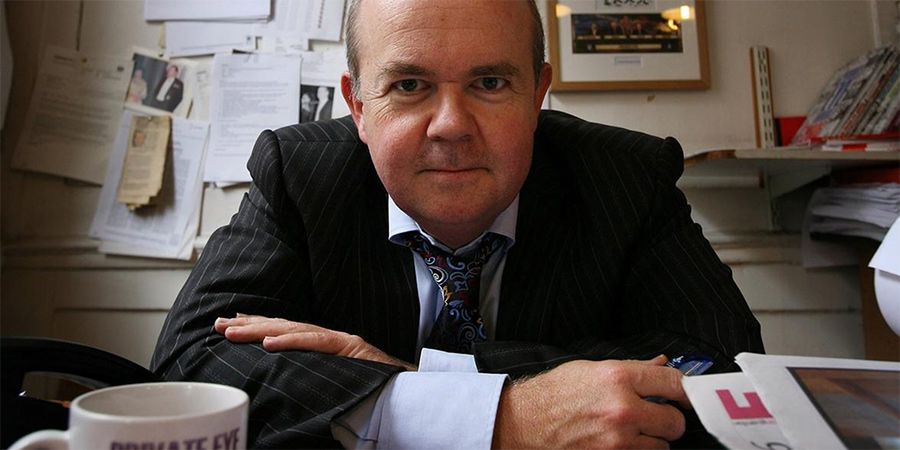
As satirical current affairs news magazine Private Eye celebrates its 60th birthday with the release of Private Eye: The 60 Yearbook, we chat to editor Ian Hislop about satire, his favourite memories from over thirty years of Have I Got News For You, and the strange status of Hollywood hairpieces...
You said in an interview that you found it tough making Private Eye during lockdown, with Soho deserted and everything done over Zoom. How is Private Eye doing now?
We're still not back in Soho. We're still basically assembling it online and in people's kitchens, so it's a very odd experience.
I'm delighted we've managed to do it at all really! The comedy in particular, it's OK because those of us who are doing it have known each other a long time. Nick Newman and Colin Swash, Giles Pilbrow, less so Andrew Hunter Murray, who's newer, but basically, we've sat in enough rooms together to be able to half recreate that on Zoom. You can tell with the time lag here; everyone's timing is off...
[a beat] ... Yes
[laughs] Thank you, beautifully put in punchline. But it is quite difficult. For the cartoonists I think it's the same. They all sit alone in their rooms going slightly bonkers sending me drawings, so that experience I think is the same. They've been brilliant.
One of the decisions I made at the beginning of the pandemic was 'I'm going to have another page of cartoons', otherwise people are going to be so depressed they're not going to buy this magazine at all!
We understand you are the most sued man in English legal history. Is that still the case, or has somebody else stolen your crown?
Not a crown I'd mind hugely being stolen!
I certainly was the most sued, but then the libel laws did change, partly as a result of the courts being fed up seeing me and various other people in them all the time.
A lot of things changed - the damages changed, the method of doing it - so libel became much less of a problem really. It meant I didn't have to bankrupt the paper every time!
Nowadays we have completely different problems, which is confidentiality and privacy. So whenever you find out anything interesting, particularly about the Government, they said 'Ah, I'm afraid that's confidential', so we end up spending just as much money with lawyers arguing about 'Can we say that this PCR test is a bit expensive? Seems to be run by a mate of someone in the Government, can we say this?'
... "Allegedly"!
Yes, the great secret about 'allegedly' is that it makes no difference at all! For decades I told people, particularly on Have I Got News For You, to say it. Then, a number of my lawyer friends said 'You know if you put the word 'allegedly' in, you're just repeating the libel!' Anyway, worth a go.
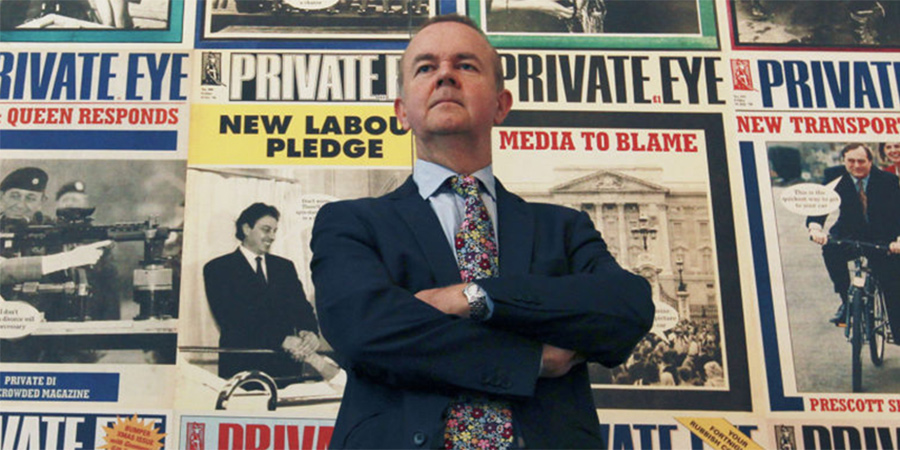
The phrase 'beyond satire' seems to be banded around a lot in relation to current events. Armando Iannucci has said that it would be more difficult to make The Thick Of It about the present government. Has there ever been a point where the government have gone so far beyond the pale, they are too ridiculous to satirise?
I think Armando's getting a bit gloomy in his old age! I think it would be perfectly possible to do it now.
My problem is that I've studied a lot of satire, partly at university, and my favourite person who said 'it's too ridiculous now, you can't satirise the present Government' is Juvenal in 100 AD... so it's not new, this cry!
Juvenal was a brilliant and funny early satirist. But that's what people always say, and you think if Jonathan Swift found something to say, if Alexander Pope found something to say, I think we can probably find something to say.
There's no shortage of material is there!
There's no shortage of material, and I don't think anything's beyond satire really. People get more exaggerated, when we were doing jokes about George Bush as an American president, we thought 'Well, difficult to get worse than this', then I remembered that we'd done Ronald Reagan. He'd literally fallen asleep during meetings and eaten jelly beans, his grasp of detail made Trump look like a genius! You have to be careful when saying 'nowadays it's all impossible', I don't think it is.
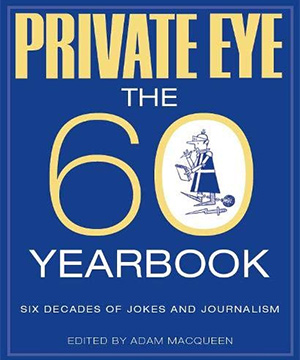
Private Eye At 50 took in the history of the magazine itself, so what was the ethos behind the new book?
Private Eye At 50 was about us, so I thought Private Eye: The 60 Yearbook should perhaps be looking outwards. It's about the news events of each decade as seen by the Eye, and then which stories the Eye broke.
Private Eye has always been this rather odd mix of jokes and journalism and the author, Adam Macqueen, said "can't we do a book with both of those in?"...
You might pick your birthday. When were you born?
1995...
[Ian leafs through the book...] 1995, right, here we go. The first joke is a picture of the Cabinet, with John Major saying "We've all agreed to disagree" and then everybody behind him saying "No we haven't!".
Here we are twenty six years later, nothing's changed!
Nope! So, here we are, in 1995 we were laughing at Sir James Goldsmith, the father of Jemima and a number of other Goldsmiths.
There's Imran Khan, who is now the Prime Minister of Pakistan. He's there, then there's the Diana interview, which you won't remember because you weren't there! The Queen, firing a rifle and saying "I don't think a divorce will be necessary!'.
Even 'Tory Three in a photo shock!'. Literally, all the characters who you thought were before your lifetime, they were all there. So you can pick your year, find the jokes, find the journalism that was there and it goes through six decades.
With such an enormous amount of material to go through, what was the criteria you and Adam Macqueen established to decide which stories got in? The funniest? The stories that were broken by Private Eye?
I think, with this one, we tried to do 'this is the news'.
From the moon landings to the Mars landings, if you like; it was trying to collate the stories that defined the decade and the era.
Hopefully, going back through the decades we, and hopefully they [Private Eye journalists and writers] - unlike a number of journalists, you haven't asked me what was the magazine like in 1961; I was one! Brilliant and precocious as I am, I really wasn't there - you'll find that at some point in the decade they were spot on.
It was a joy, going back. Adam did all the work, obviously. That's why you become editor...
You get to delegate...
Absolutely. He found some fabulous stuff, terrific jokes and extraordinary stories that have gone on and on.
Going back to the years before you joined, did compiling that section of the book throw up any stories that surprised you?
Going back to your first point about not being able to satirise things now, some of the stories back then, the Profumo affair, blimey! Or large tower blocks being unsafe and falling down, it's a surprise that life doesn't change that much. Essentially, satire and journalism need to go on saying the same things again and again, that is its job. You've got to try and find new ways and innovate, but if you suddenly say 'Things are so bad now, there's no room for us', I think that's giving up the ghost, really.
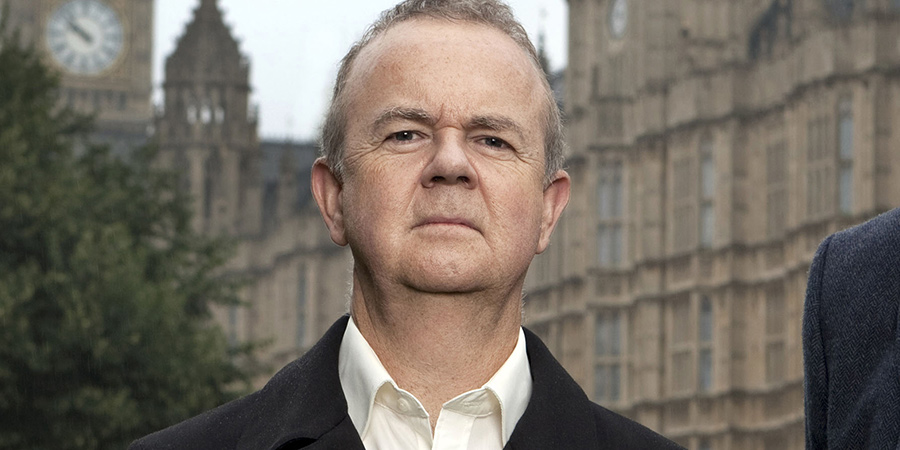
In an era where news stories like Brexit and Covid are constantly in the headlines, as editor how do you keep these subjects fresh?
This is the real challenge. If you read the reader's letters page, you'll find people going 'Oh, we're so tired of reading about Brexit'. Yeah, well I'm bored of writing about it!
I'm also slightly annoyed that the supermarket shelves don't have the things in it which you said would be fine. I think with these two current, very long running stories, Covid and Brexit - it used to be that people would say 'Oh, Brexit and Trump, haven't you got anything else to say?' and we'd say 'Well, Trump's pretty funny and he's the President of the United States and Brexit is, like it or not, quite significant'. Then, Covid dominated everything...
But if you look at the borders of the news now, Brexit's back. The fact we haven't got enough lorry drivers is a bit of a problem, Northern Ireland remains a problem, these things don't go away so you have to try not to bore people and remind them that these stories are still there and still, in many ways, predictable, the original decisions.
This week it's Afghanistan, it's twenty years on, it is two decades worth of dipping in and out of the news and then suddenly it's back and everybody's going 'Good grief, the Taliban are nasty aren't they!' well - yes, yes they are!
Who knew!
Exactly! As you say, the way these stories change, a PR agency saying to the Taliban 'Can you tone it down a bit?' is not playing very well at the moment, and remains funny, in its grim way.
I thought I'd go back and find some of the questions you asked original Private Eye editor Richard Ingrams when you interviewed him for the magazine you edited at university, Passing Wind. So these are your words, not mine! "You haven't changed the format of the magazine for a long time, do you feel it's becoming stale, as some people claim?"
[laughs] This is a brilliant device! The answer is you're quite right, I haven't, but I don't think it's becoming stale. I think before I was editor, I didn't realise quite what a good format it was, so hats off to Richard Ingrams, my predecessor.
"You also claimed that journalism is a bitchy world, is that still the case, in your experience?"
It certainly is, and the street of shame. Since that period we've had the phone hacking, we've had extraordinary ructions in the world of newspapers. Also, at that point, I don't think I had any idea just how vicious the new world of social media would be.
To be honest, I must have been asking that question in terms of bitchy Fleet Street diarists and competition between journalists. When the citizen journalists pile into each other, that is serious toxicity isn't it? I don't think I knew I was born then!
The best guest hosts of Have I Got News For You tend to be the ones that come out of left field. Paul Merton has cited the Bruce Forsyth episode as one of his favourites.
Only so that he could say that when I was growing up, my family didn't have ITV, a joke he's very fond of!
You were quite baffled by the whole thing.
Yes, and in retrospect it is the most extraordinary episode. I mean - Bruce Forsyth doing 'Play Your Iraqi Cards Right', doing the figures of the ransom notes on top of the various war criminals, it's about as bad taste as anything that's been on British television - 'Higher, higher! Lower, lower!', unbelievable!
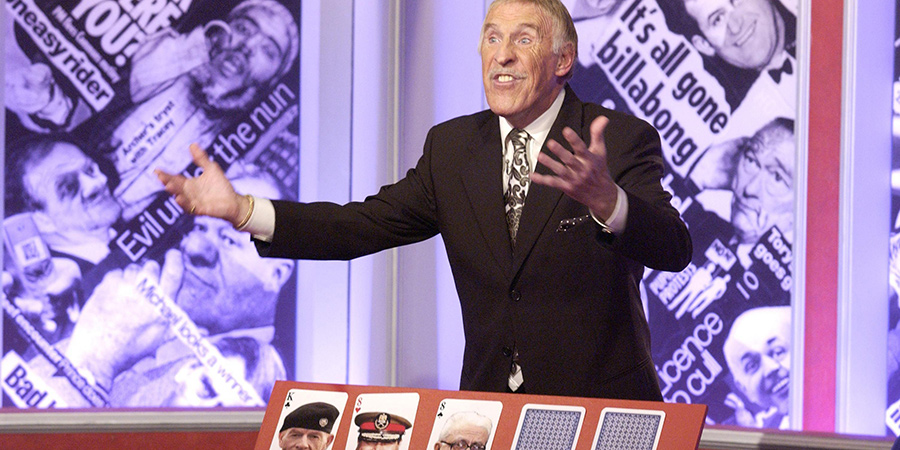
I believe Paul said it should have been called 'Play Your Kurds Right'.
Indeed, a very good joke in hindsight!
Is there anybody who hasn't hosted the show yet who you've been trying to get?
Well, obviously Dominic Cummings -
If he's not too busy having an eye test of course...
Yes! Tony Blair I always thought would be good. We did have Alastair Campbell, which was fantastic and the most unlikely public figures have come on. William Shatner was my all-time favourite. You asked about libel, he libelled an entire town in Cornwall! We had to apologise. He didn't even know where it was. Very funny though.
Lots of episodes have come to be regarded as classics, are there any hosts or guests you remember with particular fondness that aren't as well remembered?
Yes, it's a lot of episodes now. In the early days we had Ken Livingstone, who was one of the great guests. At the time, we were accused of making Ken Livingstone a star, long before we were accused of making Boris Prime Minister.
One of my favourite guests was Charles Kennedy, leader of the Lib Dems in those days, who was a brilliant and funny guest for a politician, just extraordinary really. But then he got popular and all the Lib Dems decided they hated him, calling him 'Chat Show Charlie'.
We had a lot of very good guests in the early days which rocketed the programme's profile. Germaine Greer was on half the time. Obviously she'd be cancelled now, but in those days she was the right side of madness for television.
We've had some people who were brilliant, we still do. Jess Phillips came on and you think 'bloody hell, where did she come from?', you know, just brilliant.
With the comedians, I remember the first time Kevin Bridges came on I just thought 'You're about eleven, and you're unbelievably good'.
First time Michael McIntyre was on, I think he'd only done The Charlotte Church Show and then there he was, just storming it. The great thing about the show is it's often a surprise. People come on who you expect not much from and they're brilliant, and obviously vice versa. There are people who were very, very bad indeed.
Naming no names of course!
No! You can probably fill them in yourself.
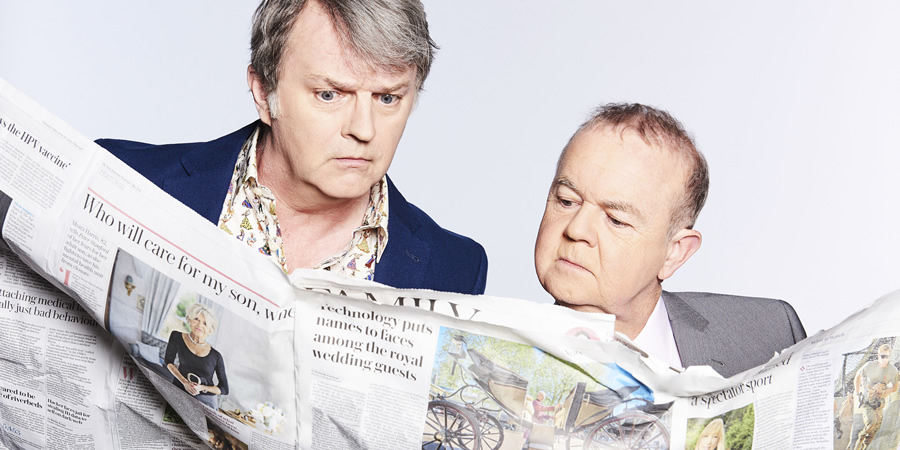
I have to say that my favourite is the Mike Yarwood show. You probably know where I'm going with this, you're frankly astonishing Jimmy Somerville impression is one for the ages.
That follows me everywhere!
Sorry to bring it back into the public consciousness!
Oh no, I'm very happy to bring it back! It was quite an early episode and then, later in life, the Reverend Richard Coles, who performed with Jimmy Somerville in The Communards and later went on to join the Church, which is not normal for popstars!
Anyway, I found myself sitting next to him and he said "this is uncanny, it's like the band is back together!", which was very, very funny. But he [Somerville] did once write to, I think it was NME, saying he was sick of this comparison and that not only could I not sing, I couldn't dance either!
When have you ever tried to dance?
Exactly! Have you ever seen me trying?
I mean we've got a bit of time now if you'd like to?...
Yeah, you've got to be kidding! The other thing you've got to remember about that episode is that we had Mike Yarwood on, who was best known for doing an impression of Harold Wilson - and Paul insisted on doing it instead!
And to be fair, it wasn't a bad impression!
No, absolutely, Paul was very proud of that one!
When The Mash Report was cancelled last year (subsequently picked up by Dave as Late Night Mash), there was a lot of talk about the BBC and anti-left-wing agendas and bias. Has that affected Have I Got News For You?
I think it's boosted a lot of our standing hugely. The idea that we're radical and left wing is marvellous news! I was worried I was getting mildly centrist so to be identified by the Director-General was great.
To be honest, we did just go on about him for the first three episodes, just to prove we were still alive.
The great thing about Have I Got News For You is that it is run by an independent production company, and it is independent, so we have a defence in that there's a wall between us.
I just thought it was a strange thing to say. On the whole, comedy and satire tends to be irreverent and against whatever's happening in the moment. If you've got a long-term Tory government - we have had rather a lot of Tory Prime Ministers in the last decade, we've still got one - it's not unusual to find political comment going against them.
I thought it was ill advised, really. Also, killing The Mash Report I thought was a strange decision. There isn't enough comedy on, there certainly isn't enough new comedy on. There was also another show which wasn't given a second series, a spin off from QI, No Such Thing As The News, which is a podcast as well [No Such Thing As A Fish]. It was incredibly cheap and very, very funny so I don't understand why that wasn't pursued.
With The Mash Report you think 'this is a pretty small show for you in the overall school of things', and it just seemed a real pity. Talking to you, it shouldn't be any surprise for you to hear me say that I think there should be more comedy on the BBC not less -
More comedy you say? An exclusive, let me just write that down....
More sitcoms and sketch shows, everything the BBC does well. It thinks it's only about the news, and it isn't. You ask most people in this country what they really like about the BBC and they'll say 'Yes, independent news, incredibly important but sitcom and comedy? Got to be pretty high, hasn't it?'.
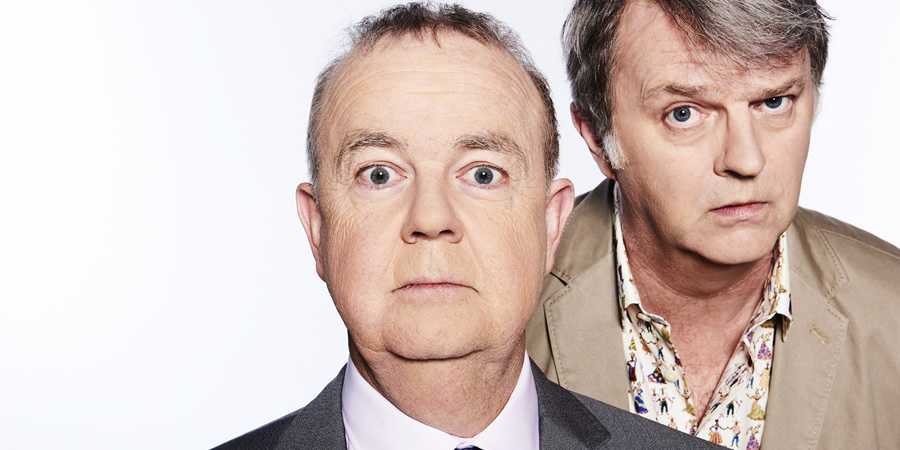
You've pre-empted my next question, which is that you've said in the past you were worried about the BBC under the Tories. What is your opinion of the state of the BBC currently and going forward?
Historically, all governments started off by saying 'We're very keen on a free press and an independent BBC' and then, after a bit, they think 'Oh, hang on, you're criticising us, so suddenly we don't think this'. The worst of them start making threats.
In my lifetime, they've nearly all done it, both Tory and Labour have started making noise about the license fee and royal charters and shoving their oar in, so this government is no different. They do viscerally hate the Beeb, for reasons that are tribal and political and often not based in any sound judgement at all.
What's different this time is that the vested interests of a lot of the newspaper groups are also against the BBC. When Martin Bashir's Diana interview comes up, it's an entire week in the press. Journalists who work for The Sun and The Times and the Murdoch group going 'Gosh, journalistic standards are low at the BBC!' and you think 'not compared to you lot!' There is a huge amount of pot and kettle going on...
Especially from someone who works at The Sun...
Exactly! The Leveson Report is not that long ago, in which the lot of them were roundly condemned. I worry for the Beeb, obviously, because it's under threat and that's part of the landscape. I do think, in a huge number of ways, for me it's right the way through - it's orchestras, it's the Proms, it's choirs, it's regional news, it's right the way through, the things it does.
Whenever I say that, there's a perfectly reasonable argument that says 'Well you would say that, you overpaid wanker!', and that's fine, it's perfectly reasonable but it is what I think. I always have to point out I will take money from almost anyone, be it ITV, Channel 4, Channel 5, I do work for all of them!
I have fond memories of watching your CBBC sitcom My Dad's The Prime Minister, which you wrote with your regular writing partner Nick Newman. Was it more difficult writing a satirical show for children, or is politics so childish it wasn't that much of a leap?
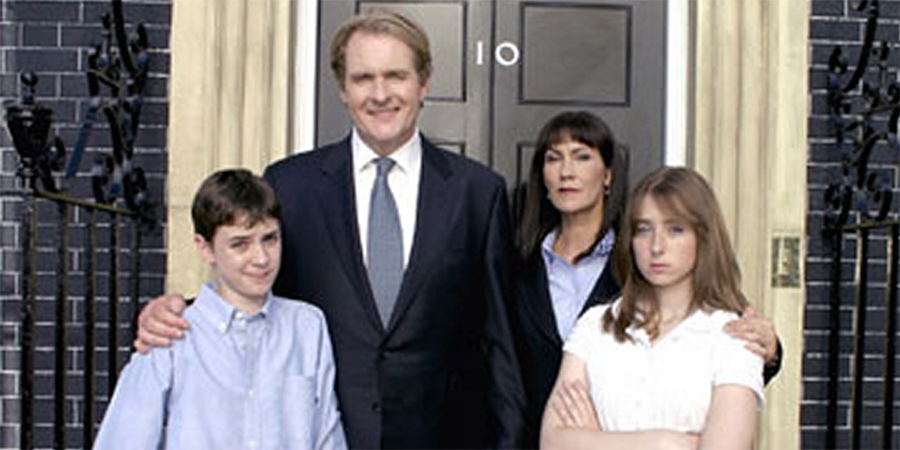
[laughs] That's the answer I should have given! That's exactly right.
We wrote it in the Blair era, when Downing Street had children in it for the first time and it gave us a fantastic way to look at politics slightly differently. Also, we both had the experience of having younger children and realising that all parents are embarrassing - my dad the teacher is pretty embarrassing, my dad the bank manager is pretty embarrassing, my dad's working round the corner - but my dad the Prime Minister? How embarrassing is that!
For my own children, having a parent who's famous is pretty tiresome and irritating so I had personal experience. Both Nick and I had kids of that age and just thought that was a brilliant way to do this sort of politics. It was really good fun. Jon Plowman, who comedy enthusiasts will know, was the producer, he's produced most stuff that's any good...
The Vicar Of Dibley, Absolutely Fabulous and all sorts...
Yes, and the original The Office, so many shows. With him as producer, we were in pretty safe hands.
The two of you also had a hand in writing the screenplay for A Bunch Of Amateurs. My first question is did you get to meet Burt Reynolds?
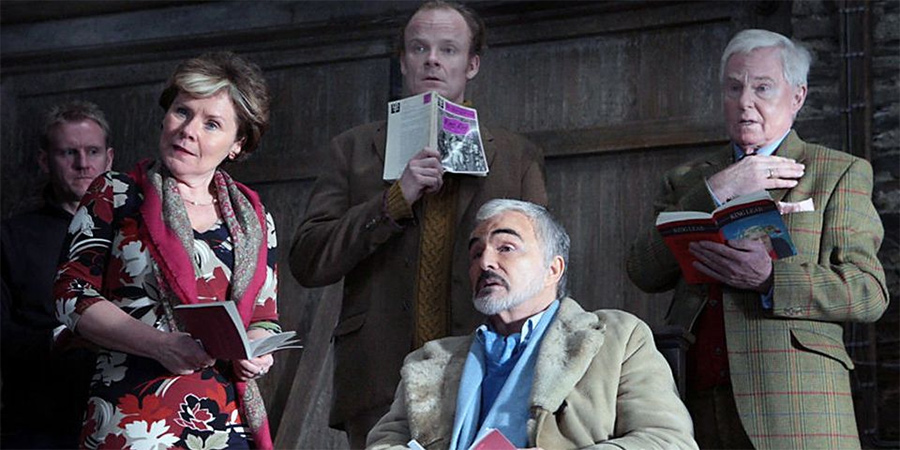
Yes! It's an extraordinarily odd film. Nick and I did a rewrite, this script had been around for a while, languishing and not being made. We got one of those strange jobs where someone asks 'Will you do a rewrite of this?'.
It was a much more serious piece before we got hold of it. It won't surprise you to find out that it turned into a bit of a comedy. We had a lot of fun doing it. Burt was just completely nuts by the time he was on the set. It was a comedy about 'Wouldn't it be weird if a Hollywood star came and acted in a provincial amateur theatre' and, actually, Burt was that character! I'm not entirely sure he'd read the script.
He turned up, which I suppose is the main thing!
Exactly, he was there, and he was just as out of it and just as 'Hollywood' as any character you could make up. The key thing you need to know about that film when you're watching it, is that Nick and I were paid less than the fee for Burt Reynolds's wig!
That must put your sense of self worth into perspective, being worth less than someone's hairline!
It does. For any aspirant writers, just remember - you are the bottom of the pile! It's more fun than anything else, but that's the status.
It was also chosen as The Royal Film Performance of that year. As a satirist, was there a certain irony to a film you were involved with being chosen for this great royal event?
Oh, it was hysterical, the idea that it was The Royal Command Performance for that year! Made me laugh hugely.
The Queen appeared and walked down the line of people, the equerry whispered in her ear 'these are the scriptwriters, ma'am' and she said 'Oh, hello, you're the scriptwriters', then moved on! It was suitably surreal, but very entertaining to see it at close quarters.
They even asked for a copy of the film to show it again at Christmas! At Balmoral I think it was. A very strange experience. The producer, who's very modest, said 'there weren't a lot of other films around'... The new Harry Potter had been delayed so, to be honest, I think we did rather well in getting a royal stamp.
I really enjoyed Trial By Laughter, a play written by you and Nick way back in pre Covid times. I was amazed I hadn't heard the story before. Do you have a wealth of these satire stories and you're gradually telling them onstage?
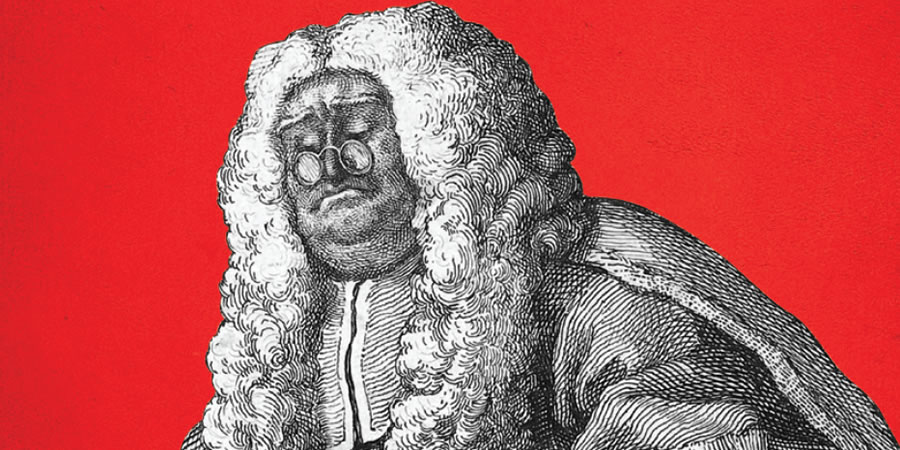
Getting them out the drawer. Going back to what you asked me earlier, I am very interested in satire, always have been, and I think it's incredibly useful to have a sense of where it comes from and who you are.
The story of Trial By Laughter is about a satirist going on trial for three days in a row for a blasphemous libel, which was a fairly obvious comic piece, using hymns and prayers as a way of attacking the government. It was a fantastic unknown story.
Essentially, three trials in a row, he was on trial every day and every time he was found innocent, they just put him on trial again the next morning!
It was at the Guildhall in London, and by the end of it there was a mob of twenty thousand people outside, all clamouring for him to be let off. All three times, the jury found him innocent. It's a brilliant story. He conducted his own defence and he had a mate who was a cartoonist and his collaborator so, obviously, Nick and I found this fairly resonant!
It was enormous fun putting it on at the theatre. A bit like The Wipers Times, it is an untold story and we thought we could resurrect this. People say 'Oh God, a story set in 1812, are we interested in this?'. We wondered who was going to turn up to watch it but, if you do it right, people come.
Do you have any new writing projects, that you're allowed to talk about?
Yes, I always like that idea that you're not allowed. The reason people don't talk about their writing projects is that mostly they're not going to happen. Nick and I have been writing a film for David Parfitt, which we're still hoping is going to happen, but we don't know. It's about an opera house in Naples during the Second World War, the occupation. It's not about satire.
Really? My God!
I know! The whole thing seems to be a bit of an adventure. It's going through the stages, and like anything with Covid, it's been stalled. But that's what we're working on and we're very keen for that to go ahead, it's been a lot of fun.
David Parfitt produced Trial By Laughter and Wipers and A Bunch Of Amateurs, so we've been working with him quite a long time! He also produced The Father, brilliant film. So, we're hoping.
People are often nervous talking about what they're doing, but lots of projects don't happen and that one might not, but that's what we're doing.
As we're British Comedy Guide, naturally I have to round up our interview by asking you about Question Time. Specifically, the moment when Priti Patel attempted to argue in favour of the death penalty and you counter argued quite spectacularly. Do you ever feel pressure in holding people to account not just in print, but openly and to their face?
Sometimes, I suppose. It's not always comfortable, but then it's not meant to be. I do feel I have an obligation to do it. It's a very good last question because as I was reading through Private Eye: The 60 Yearbook... [journalist] Paul Foot, the number of miscarriages of justice he covered!
Reading through them again, you just think 'none of these people did it and if we had capital punishment, they would be dead'. The simple point I was trying to make to Priti Patel is that it's not a deterrent if: A) the people didn't do it and, B) you kill them. Anyway, fat lot of good it did, she became Home Secretary!
It did seem quite quaint, with you using things like facts, logic and reason...
They're of no interest anymore!
Private Eye: The 60 Yearbook is out now.
Help us publish more great content by becoming a BCG Supporter. You'll be backing our mission to champion, celebrate and promote British comedy in all its forms: past, present and future.
We understand times are tough, but if you believe in the power of laughter we'd be honoured to have you join us. Advertising doesn't cover our costs, so every single donation matters and is put to good use. Thank you.
Love comedy? Find out morePrivate Eye: The 60 Yearbook

Private Eye: The 60 Yearbook is a history of the last 60 years, as seen by Britain's first, most successful and indeed only fortnightly satirical magazine. From the Beatles to Brexit, JFK to Trump, the Moon landings to the Mars landings, it tells the story of the past six decades as they were recorded in the Eye's pages. The news stories you remember - and plenty you may have forgotten - are retold in cartoons, covers and the magazine's legendary spoofs as well as extensive extracts from some of its best-loved features like Mrs Wilson's Diary, Dear Bill and The Secret Diary of John Major.
It is also the story of the headlines Private Eye made itself, from the earliest stirrings of investigative journalism exposing the Poulson Scandal and Ronan Point, through major miscarriages of justice like the Stephen Lawrence case and the Lockerbie cover-up and national scandals that have cost the country billions in dodgy PFI contracts, government cock-ups and secret sweetheart tax deals.
Inside are the stories that led to the fall of two cabinet ministers, countless corrupt business figures and even the official in charge of making sure everyone else in Whitehall's behaviour was above board. It includes writing by such satirical giants as Peter Cook, Richard Ingrams, Craig Brown, Auberon Waugh and Ian Hislop, and pictures by some of the world's best cartoonists including Michael Heath, Gerald Scarfe, Nick Newman, Willie Rushton, Robert Thompson and Ken Pyne.
First published: Thursday 2nd September 2021
- Publisher: Private Eye Productions Ltd.
- Pages: 312
![]() Buy and sell old and new items
Buy and sell old and new items
Search for this product on eBay
BCG may earn commission on sales generated through the links above.


